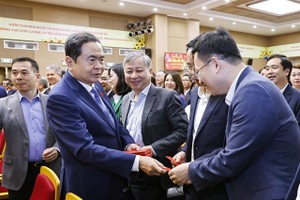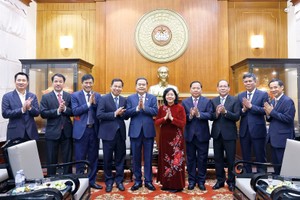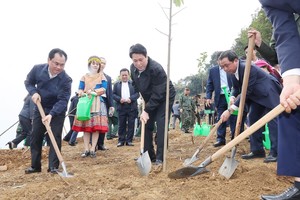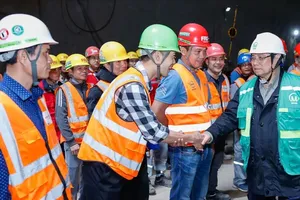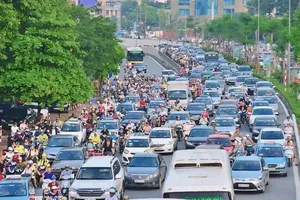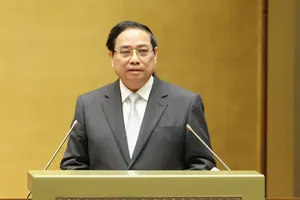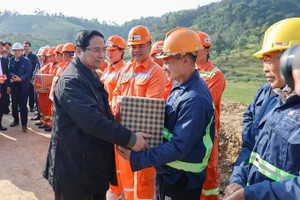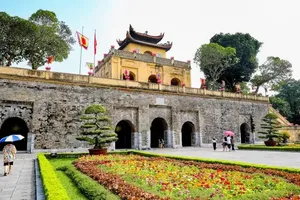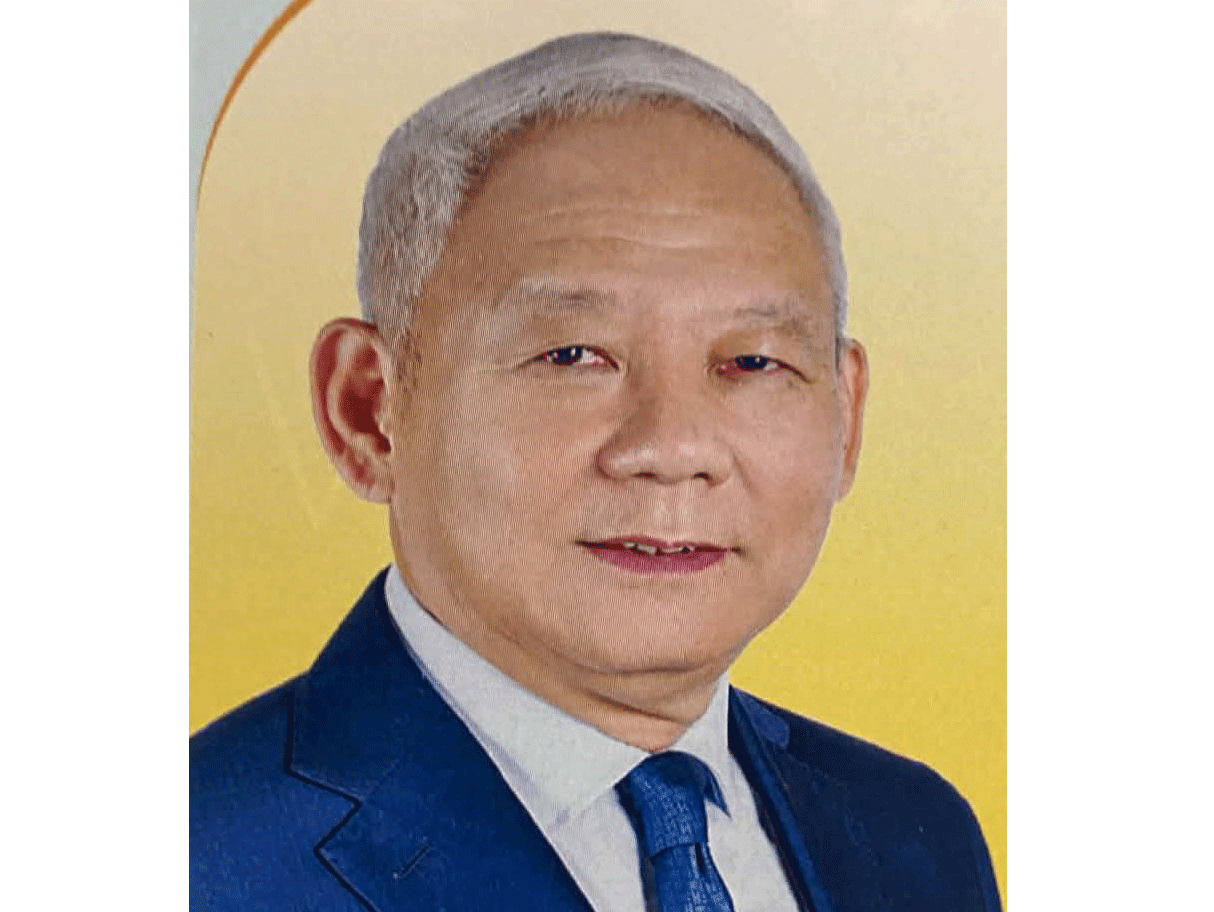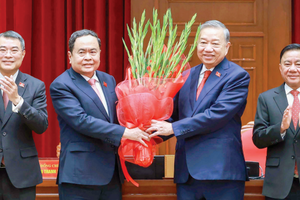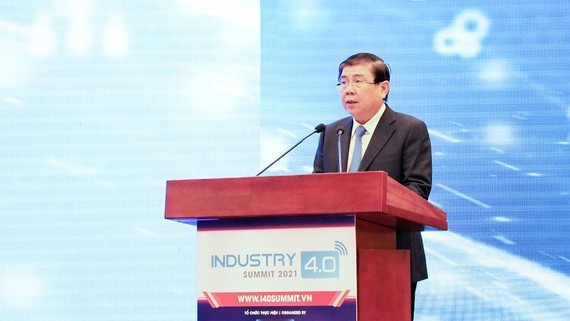 Deputy Head of the Central Economic Commission Nguyen Thanh Phong
Deputy Head of the Central Economic Commission Nguyen Thanh Phong
He made the statement at a symposium on "Developing smart cities during urbanization associated with technology, industrialization, and modernization to the year 2030, with a vision to 2045” jointly organized by the Central Economic Commission and related departments and agencies on November 10 in Hanoi.
The event is one of ten seminars under the framework of the third Industry Summit 4.0 with the theme "Promoting industrialization and modernization of the country in the digital era".
Within the framework of the summit, there were virtual exhibitions of 4.0 models, products, technology, results of digital transformation of several industries and sectors and surveys of outstanding enterprises applying digital technologies.
Speaking at the opening, Mr. Phong said that the forum is a prestigious and large-scale annual event. This is also an important political, socio-economic event, contributing to the implementation of the Resolution of the Party's 13th National Congress and the project "Industrialization and modernization guidelines and policies to 2030, with a vision to 2045".
Mr. Phong said that during the increasing trend of urbanization and smart city development, it is a good decision to build smart cities.
The Politburo decided to include the orientation of smart city development in Resolution 52-NQ/TW on September 27, 2019, which is comprised of guidelines and policies for the Fourth Industrial Revolution. The document of the 13th Party Congress on the development direction of the country in the coming period also mentioned the formation of smart urban chains in the key economic regions of the North, the South, and the Central which will gradually connect to the smart city network in the region and in the world, said Mr. Thanh Phong.
In addition to these above-mentioned factors, Mr. Thanh Phong also said that the Covid-19 epidemic has made countries in the world in general and Vietnam in particular have to consider many issues in their development, especially urban development models generally and smart city development particularly.
Also in the workshop, the delegates listened to leaders of the Ministry of Construction, and domestic and foreign senior experts’ reports about the role of smart city development, other countries’ experiences and successful models in smart city development, specific solutions in smart urban planning, management, and administration.
Furthermore, they also discussed problems raised during the smart city development process and in the context of industrialization and modernization in the country.
The Vietnamese government has paid much attention to smart urban development. Therefore, the Prime Minister on August 1, 2018 issued Decision No. 950/QD-TTg approving the sustainable Smart City Development Scheme in Vietnam between 2018 and 2025 with the vision to 2030.
So far, of 63 provinces and cities nationwide, 41 of them have been developing smart urban development projects.
